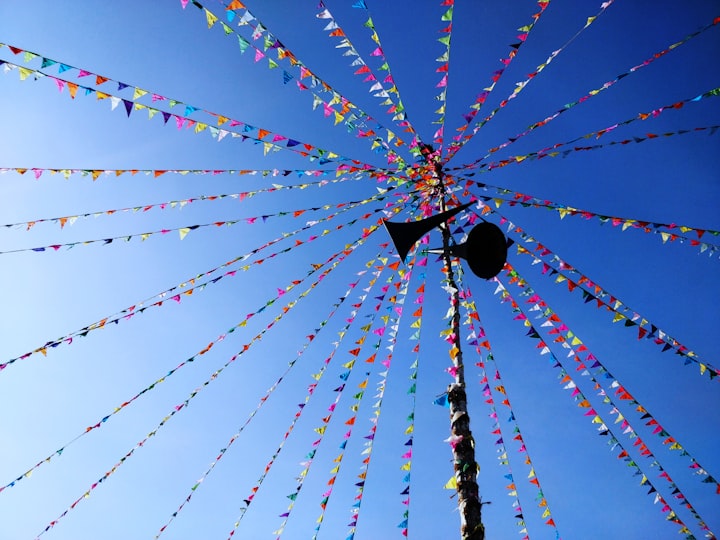Tamil Nadu's Pongal festival in India : A celebration of nature, harvest and culture
Celebrating agriculture...
Introduction
Pongal is a four-day harvest festival celebrated in the South Indian state of Tamil Nadu, and by Tamil communities worldwide. It is typically celebrated in the month of January and marks the beginning of the sun's six-month-long journey northwards (known as Uttarayana).
Pongal is a celebration of the end of the harvest season and a thanksgiving to the Sun God, Lord Surya, and the nature for a good harvest. The festival also marks the start of a new agricultural cycle. Historically, Pongal was celebrated as a thanksgiving to the nature and farmers would offer the first harvest of the season to the Sun God.
Celebration
Traditional customs and rituals
Pongal is celebrated with great fervor and enthusiasm. The main rituals of the festival include preparing sweet Pongal (a sweet dish made of rice, dal, and jaggery), drawing kolam (decorative designs made with rice flour on the floor), and boiling milk in a new earthen pot (known as Pongal pot) as an offering to the Sun God. Other customs include preparing savory dishes, visiting friends and family, and exchanging gifts.
Foods and delicacies associated with the festival
Pongal is a major food festival in Tamil Nadu, with a wide range of delicious foods prepared for the occasion. Some popular Pongal dishes include sweet Pongal, sakkarai pongal, vadai, and appam. Other delicacies include murukku, laddu, and payasam.
Significance of different elements of the celebration
Kolam is an important part of Pongal celebrations. The designs are believed to bring good luck and prosperity to the household. The Pongal pot is also significant as it symbolizes the boiling over of abundance and is a reminder to be grateful for the blessings of nature.
Days in pongal
Pongal is a four-day festival, and each day has its own significance and celebrations.
Bhogi Pongal: This is the first day of the festival and is celebrated on the day before Pongal. It is a day to discard old and unused items and welcome the new. People clean their homes, light bonfires, and throw old clothes and household items into the fire as a symbol of letting go of the old and welcoming the new.
Surya Pongal: This is the main day of the festival and is celebrated on the first day of the Tamil month of Thai (which typically falls on January 14th or 15th). This day is dedicated to the Sun God, Lord Surya, and is marked by the boiling of milk in new earthen pots (known as Pongal pot) as an offering to the Sun God.
Mattu Pongal: This is the third day of the festival and is celebrated to honor cattle and other farm animals. Cows and bulls are decorated and worshipped for their role in agriculture. This day is also associated with folk songs and dances.
Kanum Pongal: This is the final day of the festival and is celebrated as a day of family and friends. People visit each other's homes, exchange sweets and gifts, and enjoy traditional Pongal delicacies together.
The festival dates change every year based on the Tamil Calendar, so the days may differ accordingly.
Significance of Pongal in Modern Times
How the festival is celebrated in different parts of India and other countries
Pongal is celebrated with great enthusiasm not only in Tamil Nadu but also in other parts of India and by Tamil communities worldwide. In other parts of India, the festival is celebrated as Makar Sankranti, Lohri, and Bihu.
Use of technology in celebrations
With the advancement of technology, Pongal celebrations have also evolved. Social media platforms such as Facebook and WhatsApp are used to send Pongal greetings and e-invitations for Pongal celebrations. Online shops and websites also sell Pongal-related items such as kolam powders and Pongal pots.
How the festival has evolved over time
Pongal has evolved over time, with new customs and rituals being added to the celebrations. The festival has also become more inclusive, with people from different religions and communities participating in the celebrations.
Conclusion
Summary of key points
Pongal is a four-day harvest festival celebrated in Tamil Nadu and by Tamil communities worldwide. It is a celebration of the end of the harvest season and a thanksgiving to the Sun God, Lord Surya, and nature for a good harvest. The festival includes traditional customs and rituals such as preparing sweet Pongal, drawing kolam, and boiling milk in a new earthen pot.
Final thoughts on the importance and relevance of Pongal in today's world
Pongal is an important festival that continues to be celebrated with great enthusiasm and relevance in today's world. It brings people together and reminds us to be grateful for the blessings of nature. The festival has evolved over time, but it still holds its traditional values and customs that connect us with our roots and heritage. It also serves as a reminder of the importance of agriculture and the hard work of farmers in our society. In today's fast-paced world, Pongal serves as a time to slow down, reflect, and appreciate the simple things in life. It is a celebration of family, friends, and community, and it is a time to come together and create memories that will last a lifetime.







Comments
There are no comments for this story
Be the first to respond and start the conversation.